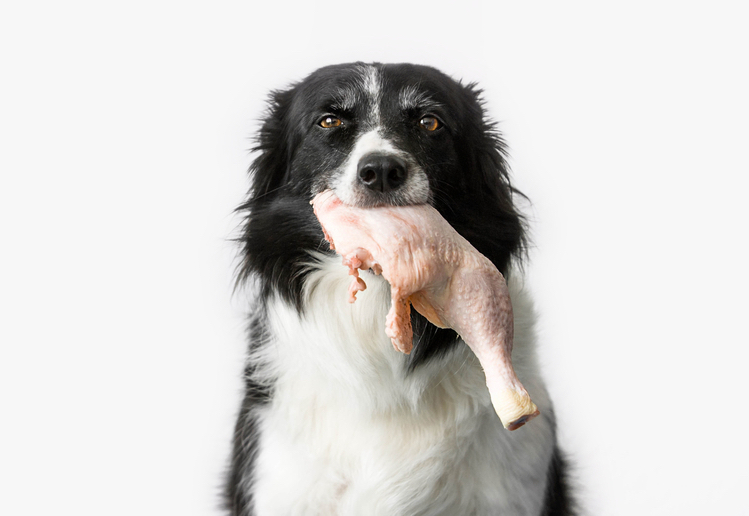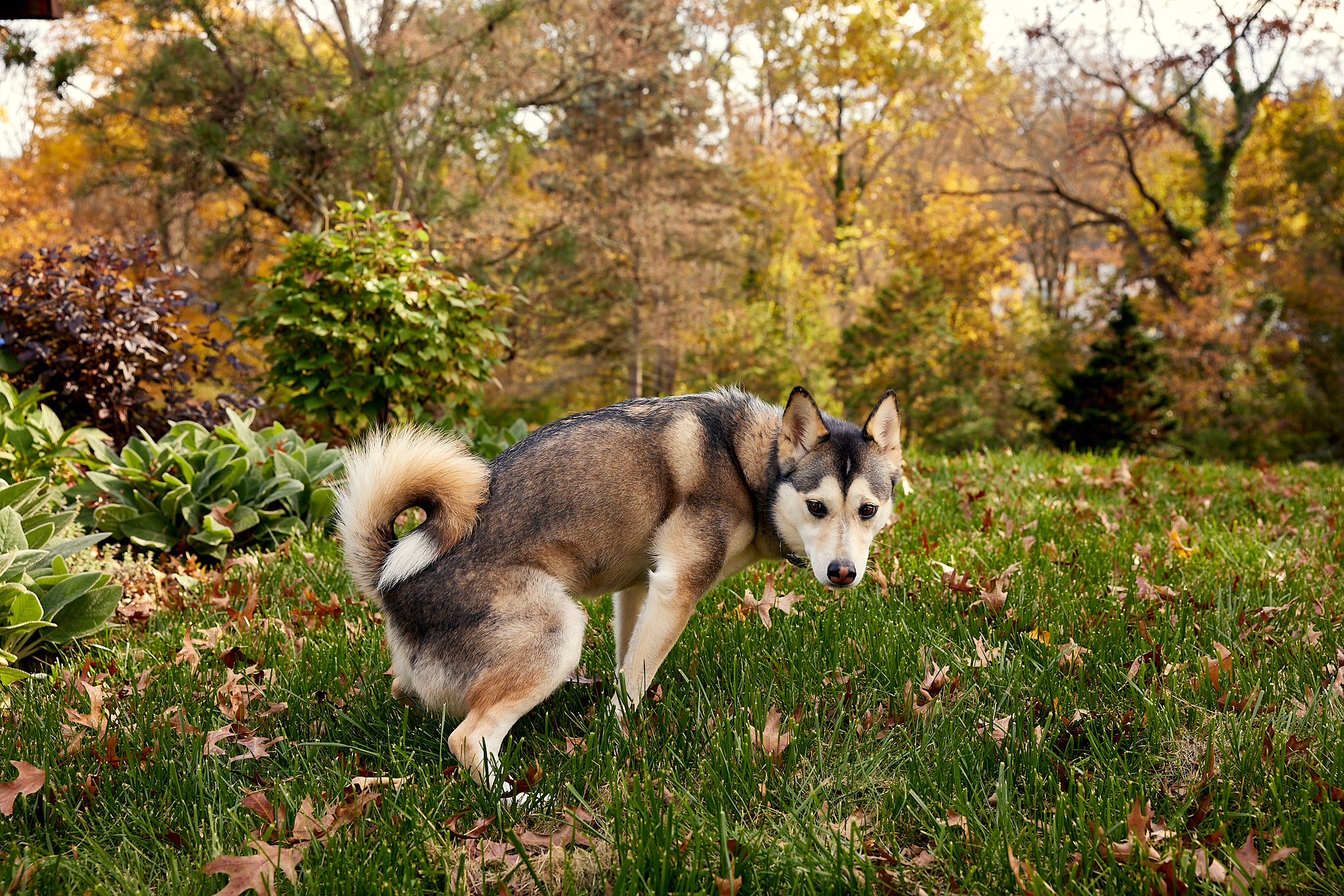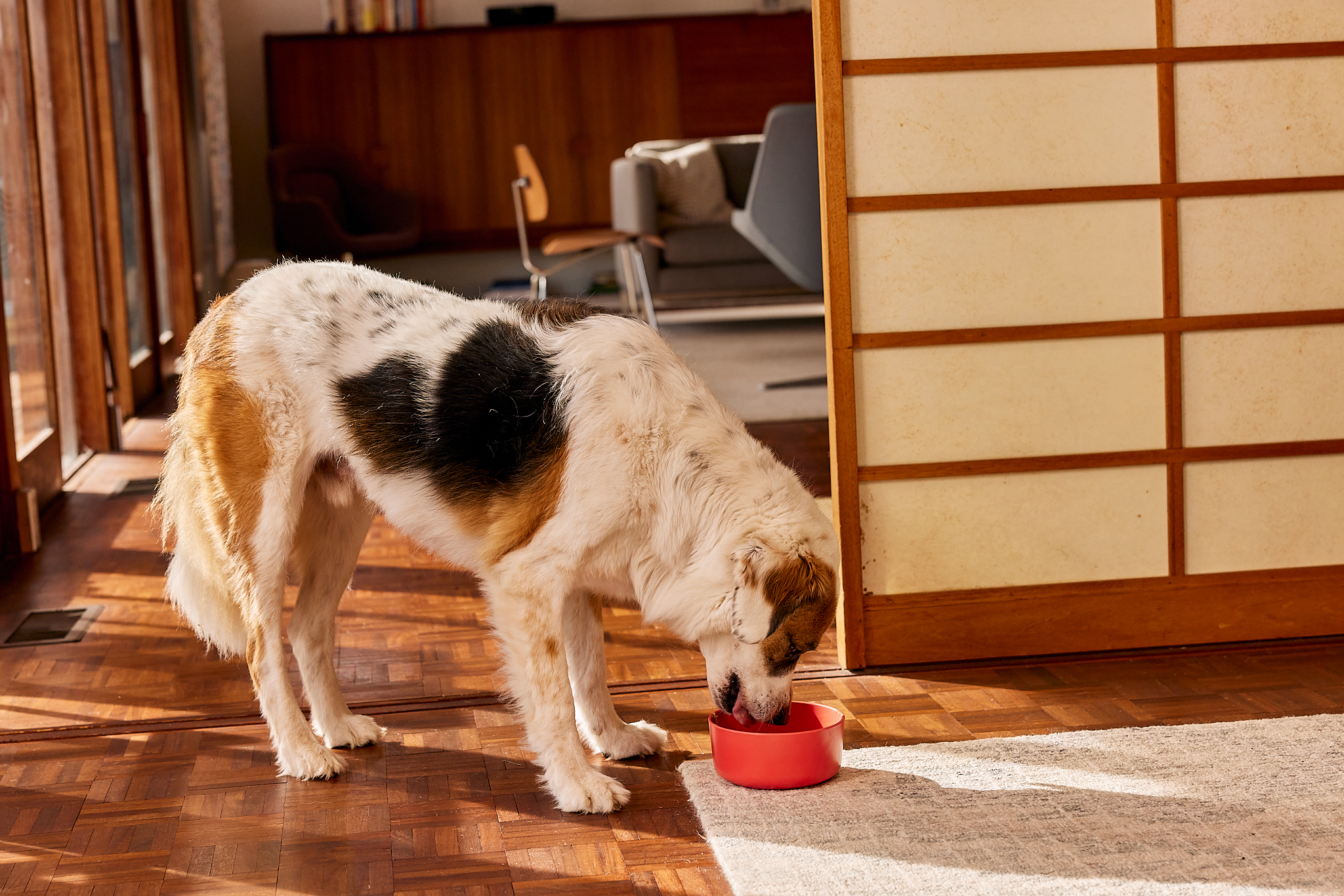Hey Ollie blog readers! We’re offering you an exclusive 60% OFF your starter box! Try now!
Salmonella is caused by a wide-spread bacterial organism that can impact many species of animals, including household pets. It can be found in both warm and cold-blooded animals. The bacteria that causes salmonella is a member of the bacterial family Enterobacteriaceae.
The infection caused by salmonella bacteria is called salmonellosis.
According to the Center for Disease Control, this rod-shaped bacterium named for the 19th-century scientist who discovered it, Dr. Daniel Salmon–is responsible for 1.2 million foodborne illnesses in humans, with 19,000 hospitalizations and some 400 deaths every year.
You or your pet can get salmonella directly or indirectly by fecal-oral contamination and between species by means of ingestion of the organism in food or water or by contact with contaminated objects called fomites.In humans, salmonella is often foodborne and is passed through improper storage or handling of contaminated food, especially raw meats. In dogs, salmonella can be passed through contaminated pet foods and treats. A great resource to learn about recalled pet products (for salmonella contamination or other issues) is through the American Vetrinary Medicine’s website.
You may think this type of contamination can’t be avoided with the limited transparency provided by the pet food industry. However, Ollie’s fresh dog food is batch-tested for safety — meaning no pack of Ollie makes it out of our USDA-certified kitchen without going through rigorous evaluation. Ollie also cooks all of its food at low temperatures to kill off harmful bacteria like salmonella, while still maintaining the nutritional integrity of the fresh meats, fruits, and vegetables.
Learn more about the benefits of a fresh natural diet for dogs!
Health risks for dogs with Salmonella
While dogs can get salmonellosis, it is rarely a serious issue in a healthy dog. Because dogs have very strong digestive systems, their strong stomach acids usually disarm the salmonella bacteria before they can cause illness.
According to Whole Dog Journal, “even if enough of the bacteria survive and manage to take up residence in the dog’s digestive tract, he may well be completely asymptomatic; not all canine carriers of Salmonella become ill. This makes it difficult to know how widespread Salmonella infections are in the canine population.”
The most common symptom of salmonella in dogs is diarrhea. This should resolve in 24- 48 hours in most cases. You may not even know your pet was sick. Additional symptoms of salmonella in pets include:
- Bloody stool
- Vomiting
- Lethargy
- Loss of appetite
- Fever
You’ll want to make sure to keep an eye on puppies or older pets with compromised immune systems if you think your dog has eaten contaminated food or treats.
If you are handling contaminated pet food or treats, you may also get sick. This is why handwashing after handling food (both yours and your pet’s) is very important. You also want to watch children around pet food as they can get sick too.
Since salmonella can be spread through feces as well, be sure to use gloves or a bag when picking up your dog’s poop. You should also wash your hands when you come in from a walk to stop the spread of these germs.
When should you seek treatment for salmonella in your dog?
While most cases of salmonella in dogs don’t require a trip to the vet, if you notice that your dog is not getting better or has a fever or is vomiting, you’ll want to seek medical attention.
While it is rare, your pet may be having a more severe reaction or may have ingested some other type of bacteria as well. Your vet may examine your pet and take some blood and a stool sample to see what is going on and prescribe the correct treatment. This may include some antibiotics or something to help stop diarrhea or vomiting.
Other illnesses in dogs
If your pet needs medical attention, you may be wondering what other diseases the vet will be looking for. These include:
- Helicobacter Infection – Caused by H.Pylori, another type of bacteria
- Tyzzer Disease – Caused by clostridium piliforme
- Tapeworms
- Roundworms
- Hookworms
- Whipworms
Ingestion of toxic foods including grapes, garlic, onions or Xylitol
Once your dog’s doctor has evaluated your dog and found the cause of the illness, they will work with you on a treatment plan. This could include a bland diet for a few days to settle the stomach. Common foods used for bland diet include boiled ground beef or chicken and rice. Sometimes pumpkin puree is also added for its digestive health benefits. As an added bonus, most dogs think it is pretty tasty!
In addition, you may be given some medication or antibiotics. It is important to give these as directed and watch out for any allergic reactions or side effects. Some dogs can vomit from the antibiotics and you’ll need to monitor your pet to make sure they don’t throw up their medicine.
The Ollie blog is devoted to helping pet parents lead healthier lives with their pups. If you want to learn more about our fresh, human-grade food, check out MyOllie.com.
Tagged As:

The nutrition your dog needs,
the food they want.

Enjoying our articles? Subscribe our Newsletters and get new articles directly to your inbox
You might also like
3 July 2025
5 MINS READ
How Fresh Food Can Help Your Dog Have Perfect Poops
As a pup parent, you’re likely very familiar with your dog’s bathroom habits. While it may not be the most glamorous part of taking care of your pup, a dog’s stool can be one of the most dir…
by Ollie Pets
4 June 2025
5 MINS READ
How Can Fresh Dog Food Help with Weight Management?
Maintaining a healthy weight is one of the most important aspects of your dog’s overall health and longevity. Being overweight or underweight can result in health complications and conditions that…
23 May 2025
5 MINS READ
Why Fresh Dog Food Makes Happier, Healthier Dogs That Live Longer
Every pup parent wants their dog to live a long, happy life, and the path to a healthier, happier dog starts with what’s in their bowl. Recent research and expert insights reveal that fresh dog …
by Ollie Pets







